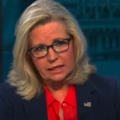In a recent interview on Hannity, Harvard Law Professor Alan Dershowitz criticized New York Attorney General Letitia James for her targeted legal actions against former President Donald Trump. Dershowitz, a figure renowned for his legal acumen and authorship of best-selling books, brings to light a concerning trend in the politicization of the American justice system. His insights, shared in a discussion that peeled layers off the complex legal battle, underscore a fundamental question: Is justice being served, or are political vendettas clouding the legal landscape?
Dershowitz’s critique centers on James’s campaign promise to target Trump, a stance he argues is fundamentally at odds with the principles of fair and impartial justice. The legal luminary draws parallels to historical abuses of power, invoking the shadow of Stalin’s regime to illustrate the dangers of a prosecutorial system bent on targeting individuals rather than crimes. This comparison is not made lightly; it serves to highlight the gravity of a situation where electoral promises can dictate legal pursuits.
The Harvard professor’s argument is multifaceted, focusing not only on the ethical implications of James’s actions but also on the legal peculiarities of the case against Trump. He points out the absence of tangible harm or damages in the allegations, a cornerstone of legal proceedings that seems conspicuously absent in this scenario. In a system where the magnitude of penalties often correlates with the extent of damage, the case against Trump, according to Dershowitz, stands on shaky ground. The insistence on pursuing a case with “zero damages” not only defies legal logic but also sets a dangerous precedent for the weaponization of the legal system against political adversaries.
Dershowitz’s analysis extends to the broader implications of such legal tactics on the democratic process and the willingness of business leaders to engage in public service. The message sent by James’s campaign against Trump, he argues, is a chilling one: that political partisanship can and will be used to launch legal offensives against political figures. This, Dershowitz warns, could deter talented individuals from entering the political arena, fearing legal retribution for their political affiliations or policy decisions.
The discussion also touched on the subjective nature of property valuations, a central issue in the case against Trump. Dershowitz and the host, Sean Hannity, criticized the arbitrary nature of the valuations at the heart of the legal proceedings, pointing out the inherent subjectivity and the potential for bias in such assessments. The example of Mar-a-Lago’s valuation was highlighted as particularly egregious, with Dershowitz humorously noting the absurdity of the property being valued at a fraction of its worth.
This conversation sheds light on a critical issue facing our justice system: the intersection of law and politics. Dershowitz’s stance is clear and compelling, arguing that Letitia James’s pursuit of Trump is not only ethically questionable but also legally dubious. By framing her campaign around the goal of targeting a specific individual, James has, in Dershowitz’s view, compromised the integrity of her office and the justice system at large.
Final Thoughts
Alan Dershowitz’s critique of Letitia James’s legal crusade against Donald Trump is a sobering reminder of the delicate balance between justice and politics. His arguments, rooted in legal principle and historical context, highlight the dangers of allowing political motivations to drive legal actions. The case against Trump, as discussed, appears to be more about fulfilling campaign promises than about upholding the law or seeking justice for actual harm.
The politicization of legal proceedings, as Dershowitz rightly points out, undermines the credibility of the justice system and threatens the democratic values it is meant to uphold. When legal actions are perceived as politically motivated, it not only damages the reputation of those involved but also erodes public trust in the institutions designed to protect and serve the principles of fairness and justice.
In a climate where political divisions are increasingly pronounced, the need for a justice system that remains above the fray is more critical than ever. Dershowitz’s insights into the case against Trump serve as a cautionary tale about the consequences of allowing political ambitions to dictate legal strategies. It is a call to action for those committed to preserving the integrity of our legal system and ensuring that justice, not politics, guides the hand of the law.
Having trouble? If your comment doesn’t post, submit another comment right after it that says: Jimmy, please approve my comment that didn’t post.














BRavo move Alan Bravo